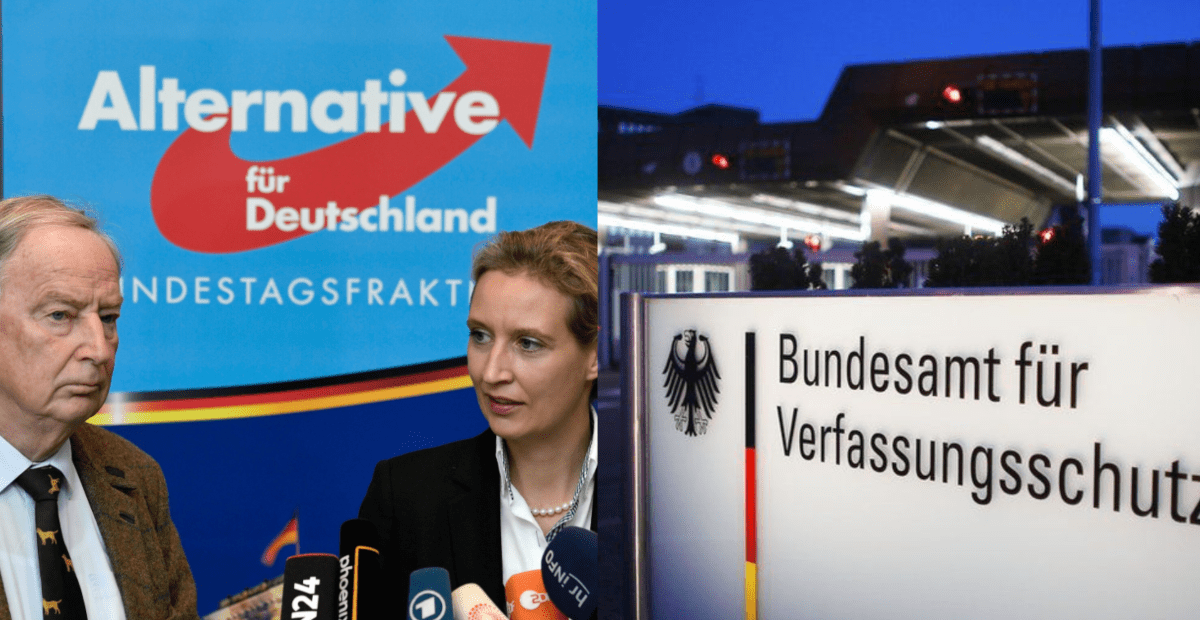 National File
National File 
JACK HADFIELD
The entirety of the populist right-wing party AfD has been placed under surveillance by Germany’s state intelligence agency, only months before national elections.
Several German outlets announced on Wednesday the decision by the Federal Office for the Protection of the Constitution (BfV), the country’s domestic intelligence agency, to place the AfD under surveillance. According to these reports, BfV President Thomas Haldenwang told the leaders of regional domestic security branches that the AfD had been monitored as a “suspected case” of “far-right extremism” since February 25th.
The BfV, which was set up after the fall of Nazi Germany to “protect democracy” had previously labelled the party’s youth division and a section of the party known as “The Wing” as suspected extremists. The AfD is currently the biggest opposition party to the “grand coalition” of centre-right and centre-left parties led by Angela Merkel, with the party standing against immigration, radical Islam, and for other strong populist policies.
The announcement from the BfV comes just a few weeks before regional elections, and only months before the national election, scheduled for September 26th. The upcoming elections will be crucial for the AfD, with the national election marking Merkel’s exit from the office of Chancellor, a position she has held for 16 years, dominating German politics in that time.
The interior affairs spokesman for the CSU, Merkel’s sister party, wrote on Twitter that it was the “correct decision,” describing the AfD as “the opponents of the free democratic basic order,” with another spokesman for Merkel’s bloc saying it was “no surprise” they are being investigated.
The BfV did not publicly comment on the matter, but AfD co-leader Tino Chrupalla described the actions of the BfV as “scandalous,” accusing the intelligence agency of leaking the investigation to the media “in order to influence competition between democratic parties to the detriment of the AfD.”
Prominent AfD politicians were also very critical of the surveillance order and of the BfV. Alice Weidel said it was particularly noteworthy that the actions were taking place in an election year, and that the party would take legal action.
“You know you’re living in Germany when one and a half weeks ahead of two important regional elections and a few months before the national election the domestic secret service declares the biggest opposition party to be suspicious,” said Jürgen Braun, another AfD lawmaker on Twitter.





